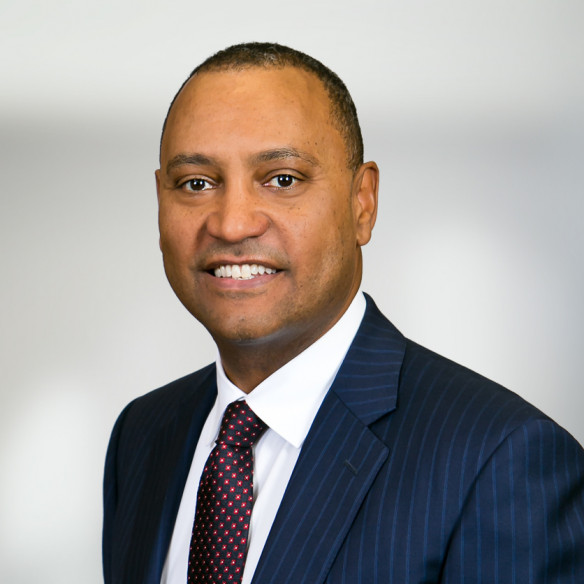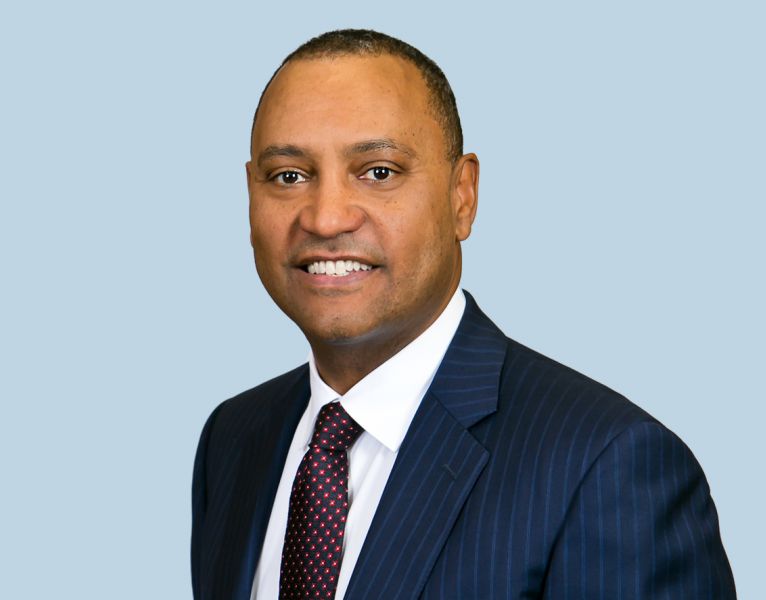Proskauer Rose LLP partner Bart Williams led Gilead Sciences Inc. to a victory over a $3.6 billion antitrust lawsuit, and helped Netflix resolve claims that Ava DuVernay's show about the Central Park Five defamed the prosecutor of the later- exonerated men, earning him a spot as one of the 2024 Law360 Trials MVPs.
His biggest accomplishment:
As lead counsel for Gilead Sciences in a six-week trial last year, Williams defeated claims that his client delayed the entry of generic HIV drugs into the market.
Litigating the case involved explaining complex antitrust and patent law concepts to a jury, because the matter turned on whether Gilead would have won a patent case that settled in 2014. This challenge was exacerbated by the fact that Williams' team was hired about three and a half months before the trial began, as well as by the reality that "most jurors are not fans of the pharmaceutical industry to begin with," Williams said.
"If the jury concluded that Gilead would have lost the patent case that settled, then we would have lost this case, because the jury would have concluded that the entry to the generic market had been delayed. But if they concluded that Gilead would have prevailed in that case, then the entry was actually early, and not late," Williams said. "Explaining that concept to jurors in the way that they could absorb it and understand it and absorb the underlying patent issues was very challenging."
Winning the case was "very gratifying," particularly because his client could have faced billions of dollars in damages if it had lost, Williams said.
Other notable cases:
Another case Williams worked on this year that proved gratifying for the longtime trial attorney involved defamation claims against Netflix, DuVernay and writer Attica Locke, who together released a show called "When They See Us."
The four-part miniseries told the story of five Black and Latino teenage boys known as the Central Park Five, who were convicted of the 1989 rape and assault of a white woman in New York's Central Park despite a lack of DNA evidence tying them to the crime scene. They were later acquitted after a serial rapist whose DNA was found at the scene confessed. The former head of the sex crimes unit at the Manhattan District Attorney's Office — Linda Fairstein, who oversaw the boys' prosecution — sued for defamation, saying the series cast her in a bad light.
"The show basically portrays her being the head of the unit, working with the detectives, making some of the calls, figuring out how to deal with the absence of DNA at the scene — how they'd spin that at trial," Williams said. "Our defense was that the show accurately portrayed her. The research the show's writers had done was considerable."
Ahead of the defamation trial — in which one member of the Five was set to testify, along with Fairstein, some detectives in her unit and the "incredibly impressive" DuVernay and Locke, according to Williams — Fairstein settled. She and her attorneys received no payment and no confidentiality agreement as part of the deal, which required Netflix to move one sentence of an existing disclaimer from the end credits to the opening ones. The streaming giant is also donating $1 million to The Innocence Project, a group that works to exonerate those who have been wrongfully convicted.
Williams said the case was fascinating, pitting Fairstein — who "maintains to this day that the Five are guilty," Williams noted, and for a long time, controlled the narrative around the Central Park Five case — against a show that depicted events from the then-teenagers' point of view.
"These prosecutors and detectives are not used to that perspective being told, and they don't like it at all," Williams said. "A theme of the case was the hypocrisy of it all — that it's perfectly fine for them to tell their story, from the perspective of 'let's put them away,' but when the story is told from the Five's perspective, that's a problem."
Why he's a trial attorney:
Williams, a former point guard on Yale University's basketball team, became a trial attorney because it made use of his proclivity for competition, performance and working on a team.
"For people who are drawn to those three things, it really can be gratifying and enjoyable," Williams said.
He said he grew up watching shows like "L.A. Law" and "Ally McBeal," which featured attorneys who are "fantastic in court," and who happened to be "not only middle-aged white guys."
"When I started out, it still was aspirational — there weren't that many Black folks who were leads in corporate trials representing big companies," Williams said. "You might see someone at the table, but you would very rarely see someone in the lead. That has changed over the course of my career."
What motivates him:
Williams' source of motivation has changed over time, he said. When he was starting out, he geared himself toward taking on the toughest cases. After getting to the point where he's taking those on consistently, he began drawing inspiration from mentoring younger attorneys, he said.
"I'm totally devoted to the development and success of the newer lawyers that I work with — partners who are in their 30s, maybe approaching their 40s, who are super talented," Williams said.
This past year, he was thrilled to see two partners who he's worked with since they were associates take the lead in trials — "quite an accomplishment for people in BigLaw in their 30s," he said. He's worked with those attorneys, Susan Gutierrez and Lee Popkin, for about nine years, he noted.
"There are a couple other lawyers I've worked with, as well — Kyle Casazza and Shawn Ledingham — who are doing the same thing, moving up the ranks and getting the attention of clients, and who have more junior lawyers who they're teaching," Williams said. "I think we're building a fabulous group of trial lawyers at Proskauer that is going to serve clients for years to come."
Advice for junior attorneys:
Williams said he advises younger trial attorneys to become students of the field.
"Read biographies of famous trial lawyers," he said. "Read transcripts of really good lawyers' opening statements, closing arguments, cross-examinations, arguments on motions. There's so much to learn from people who are really good at it."
Williams speaks from experience: When he was coming up as a trial lawyer, he would go to the courthouse as often as he could, pulling up transcripts and studying them intently. It always helped; he'd either encounter mediocre arguments, which would boost his confidence, or great arguments, which would humble and inspire him, he said.
"I think becoming a student of it is very important," Williams said. "What's also important is the equivalent, in sports, of asking for the ball. Be relentless in asking to take the witness yourself, do the argument to the court yourself."
Reproduced with permission. Originally published November 4, 2024 "MVP: Proskauer Rose's Bart Williams,” Law360.


